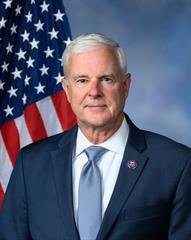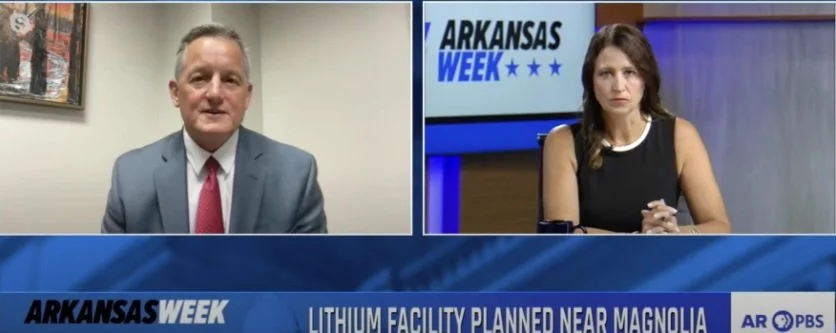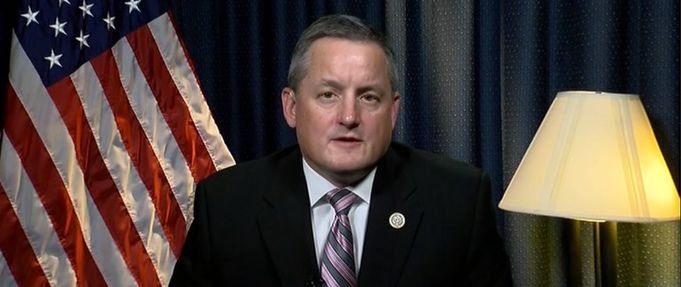Washington, D.C. — Senators Tom Cotton (R-Arkansas), John Boozman (R-Arkansas), and Congressmen Rick Crawford (Arkansas-01), French Hill (Arkansas-02), Steve Womack (Arkansas-03), and Bruce Westerman (Arkansas-04) today sent a letter to the European Union raising major concerns with the proposed European Union Deforestation Regulation (EUDR). This impractical regulation will impose an unfair and unnecessary burden on American businesses while failing to effectively combat deforestation.
In part, the lawmakers wrote:
“This regulation is unworkable for the forest products industry in the United States and would jeopardize more than $3.5 billion worth of paper and wood products shipping into the EU market for essential products like timber or pulp for baby diapers.”
Full text of the letter may be found here and below.
March 14, 2025
Valdis Dombrovskis, European Commissioner for Economy and Productivity
Jessica Roswall, European Commissioner for Environment
Marcos Sefcovic, Commissioner for Trade and Economic Security
Dear Commissioners,
We write to you today to share our significant concerns with the European Union deforestation-free supply chains regulation (Regulation (EU) No 2023/1115) and to share our perspective on the impact this will have on the more than 900,000 forest products workers throughout the United States and the over 23,000 men and women in Arkansas who are employed by this industry. This regulation is unworkable for the forest products industry in the United States and would jeopardize more than $3.5 billion worth of paper and wood products shipping into the EU market for essential products like timber or pulp for baby diapers.
The U.S. Forest products industry is a strong proponent of international efforts to suppress deforestation and forest degradation. As such, the United States has excellent ratings in this regard and no evidence of deforestation. Unfortunately, as written, this regulation presents severe compliance challenges that constitute technical barriers to trade for the U.S. Forest products industry. The United States is not a source of the EU’s deforestation concerns and the burden this regulation puts on U.S. pulp, paper, and packaging manufacturers will not achieve the EU’s stated policy goal. Furthermore, the U.S. is widely recognized for its sustainable forestry practices, with negligible deforestation risk, as confirmed by the EU Observatory on deforestation and forest degradation.
The unprecedented and over-prescriptive reporting requirements of the regulation are a one-size-fits-all approach that does not recognize commodity-specific challenges or country differences. The U.S. Forest products sector operates with deep visibility into their supply chains, with clear management rules and strict controls of forestry practices. These practices and performance measures not only deliver the intended goals of EUDR but go beyond the narrow objectives of regulation.
We are asking you and the European Commission to work with the United States to ensure the United States is recognized as the lowest possible risk for deforestation and to ensure the geolocation traceability requirements in place are proportional to the level of risk for a particular country. These obligations should be simplified, more proportional and with greater distinction among the risk categories. The geospatial coordinate mapping requirement for every individual plot of land should be removed for supply chains that have already achieved deforestation risk status as low risk, negligible, or insignificant. Secondary materials should be exempt from geolocation because traceability is virtually impossible. Unless these key problems are addressed, I am extremely concerned that the EU may lose their trading relationship with the U.S. Forest products industry, which they rely upon every day.
We also believe the EUDR fits within President Trump’s “America First Trade Policy” executive order that was signed on January 20th, 2025, and requires key members of his cabinet to identify examples around the world where the United States is being disadvantaged by policies in place from governments that could be considered a technical barrier to trade and submit reports to President Trump by April 1st, 2025. Already, key members of the President’s cabinet, like Mr. Howard Lutnick, the Secretary of Commerce, have identified the EUDR as a potential technical barrier to trade and it will be more important than ever that you and your team address the concerns we have identified here.
We look forward to your response.
Sincerely,
Arkansas Timber and Forestry Products Image - Arkansas Inc









